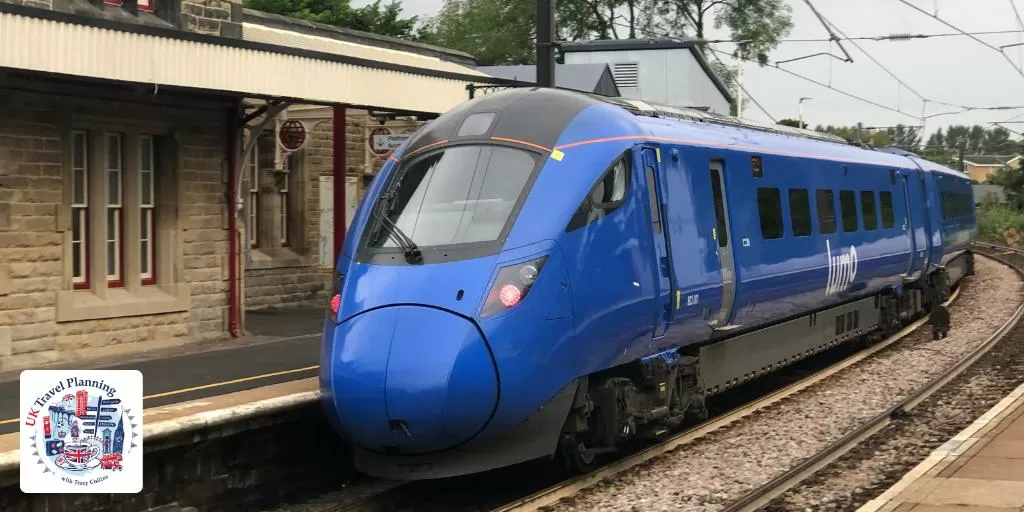In the latest episode of the UK Travel Planning Podcast, hosts Tracy and Doug dive into the world of train travel in the UK. With Doug’s extensive experience working in the UK rail industry and their work helping thousands of travellers through consultations, they have uncovered the 15 most common mistakes that travellers make when navigating the UK by train. But don’t worry, they also share valuable tips on how to avoid these mistakes and make your train journey in the UK a smooth and enjoyable experience.
1. Not booking in advance
One of the biggest mistakes travellers make when planning a train journey in the UK is not booking in advance. This not only leads to higher prices but also limited availability, especially during peak travel times. Tracy and Doug recommend booking your train tickets at least 12 weeks in advance to get the best deals and secure your preferred seats.
2. Not considering alternative routes
Many travellers assume that the most direct route is always the best option. However, this is not always the case when it comes to train travel in the UK. Tracy and Doug advise considering alternative routes, which may be cheaper or offer better views of the countryside. Plus, it’s always fun to explore new places along the way.
3. Not checking for railcards
If you are a frequent traveller in the UK, it’s worth investing in a railcard. These cards offer discounts on train tickets and can save you a significant amount of money in the long run. Make sure to check if you are eligible for any railcards before booking your tickets.
4. Not familiarizing yourself with the train stations
Train stations in the UK can be quite busy and confusing, especially for first-time travellers. It’s essential to familiarize yourself with the train stations you will be using, including the layout, facilities, and where to find your train. This will save you time and stress on the day of your journey.
5. Not checking for engineering works
Before booking your train tickets, make sure to check for any planned engineering works on your route. These works can cause delays and disruptions, so it’s best to plan your journey accordingly. You can find this information on the National Rail website or by contacting the train operator.
6. Not allowing enough time for connections
If you have to change trains during your journey, make sure to allow enough time for connections. Tracy and Doug recommend at least 15-20 minutes between trains, especially if you are unfamiliar with the train stations. This will give you enough time to find your next train and avoid missing it.
7. Not reserving seats
While it’s not always necessary to reserve seats on UK trains, it’s highly recommended, especially during peak travel times. This will ensure that you have a guaranteed seat and avoid the stress of finding one on a crowded train.
8. Not checking luggage restrictions
Each train operator in the UK has its own luggage restrictions, so it’s crucial to check these before your journey. Some trains have limited space for luggage, and you may be charged extra for oversized or excess baggage. Avoid any surprises by checking the restrictions beforehand.
9. Not taking advantage of onboard facilities
Many UK trains offer onboard facilities such as Wi-Fi, charging points, and food and drink services. Make sure to take advantage of these amenities to make your journey more comfortable and enjoyable.
10. Not keeping your ticket safe
Your train ticket is your proof of purchase and should be kept safe throughout your journey. Tracy and Doug recommend keeping your ticket in a secure place, such as a wallet or purse, to avoid losing it. You may also need to present your ticket for inspection during your journey, so make sure it’s easily accessible.
11. Not knowing your rights
As a train passenger in the UK, you have certain rights, including compensation for delays and cancellations. Make sure to familiarize yourself with these rights, so you know what to do in case of any issues during your journey.
12. Not considering alternative modes of transport
While train travel is a popular and convenient way to get around the UK, it’s not the only option. Tracy and Doug suggest considering alternative modes of transport, such as buses or coaches, which may be cheaper and offer different routes.
13. Not taking advantage of discounts
There are various discounts available for train travel in the UK, such as group discounts, student discounts, and off-peak fares. Make sure to check for any discounts you may be eligible for before booking your tickets.
14. Not





![Complete BritRail Pass Guide [Types, How to Use It, Pros + Cons]](https://inside-news.uk/wp-content/uploads/2025/06/00221EB4-BCA2-4DBB-6CD4-83DBC37D71FA-120x86.webp)
















